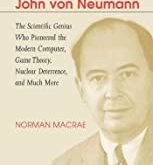from Norbert Häring Universal basic income has a lot of support among the left but also faces a lot of criticism or even hostility from the left. As on of the critics of I have used a book defending basic income against criticism from the left to check my beliefs against counter-arguments from the same side of the political spectrum and to clarify the reasons for not being convinced. One of Karl Reitter’s arguments in his book “Kritik der linken Kritik am Grundeinkommen” has indeed...
Read More »Copyrights and Patents and IP, Oh My! [Dean Baker]
Why are we incentivizing wealth at the expense of health? Dean Baker (@Center for Economic and Policy Research) breaks down why our intellectual property system is in desperate need of reform. Produced by Matthew Kulvicki & Nick Alpha
Read More »Economics and the law of the hammer
from Lars Syll [embedded content] As yours truly has reported repeatedly during the last couple of years, university students all over the world are increasingly beginning to question if the kind of economics they are taught — mainstream economics — really is of any value. Some have even started to question if economics is a science. My own take on the issue is that economics — and especially mainstream economics — has lost immensely in terms of status and prestige...
Read More »The reinjection of empirical ideas
“As a mathematical discipline travels far from its empirical source, or still more, if it is a second and third generation only indirectly inspired from ideas coming from ‘reality’, it is beset with very grave dangers. It becomes more and more purely aestheticizing, more and more purely l’art pour l’art. This need not be bad, if the field is surrounded by correlated subjects, which still have closer empirical connections, or if the discipline is under the influence of men with an...
Read More »Neoclassical clunkers. How economists’ ideas about risk aversion are duping pension pundits.
(Part of) the Dutch pension system will, if everything goes according to plan, soon be replaced with a new neoliberal system based upon, among other things, measured neoclassical ‘risk aversion’. However – economists are not yet able to measure this – which will lead to big problems. let me explain. The present system consists of: a social democratic element (the ‘first pillar’), a kind of not means tested basic income for everybody...
Read More »Consumer price inflation: USA, EU and UK
European Union Inflation Rate
Read More »On statistics and causality
from Lars Syll Ironically, the need for a theory of causation began to surface at the same time that statistics came into being … This was a critical moment in the history of science. The opportunity to equip causal questions with a language of their own came very close to being realized but was squandered. In the following years, these questions were declared unscientific and went underground. Despite heroic efforts by the geneticist Sewall Wright (1889-1988), causal vocabulary was...
Read More »The semiconductor bill and the Moderna billionaires
from Dean Baker It’s pretty funny that we continually debate the causes of inequality when we routinely pass bills that redistribute income upward. The semiconductor bill about to be approved by Congress is the latest episode in this absurd charade. To be clear, the bill does some good things. It has funding both to subsidize manufacturing capacity for semiconductors in the United States and also for further research in developing better chips in the future. Both of these are positive...
Read More »Book Review by Jayati Ghosh : The journey to greater equality
from Jayati Ghosh Economic inequalities have increased substantially across the world in the past three decades and have deepened during the COVID-19 pandemic. Thomas Piketty and his colleagues at the World Inequality Lab at the Paris School of Economics (PSE), France, have been at the forefront of tracking these changes, providing extremely useful analyses based on careful aggregation of national data on income and wealth inequality from a multitude of sources. They have shown that...
Read More »Heckman on where causality resides
from Lars Syll I make two main points that are firmly anchored in the econometric tradition. The first is that causality is a property of a model of hypotheticals. A fully articulated model of the phenomena being studied precisely defines hypothetical or counterfactual states. A definition of causality drops out of a fully articulated model as an automatic by-product. A model is a set of possible counterfactual worlds constructed under some rules. The rules may be the laws of physics, the...
Read More » Real-World Economics Review
Real-World Economics Review




